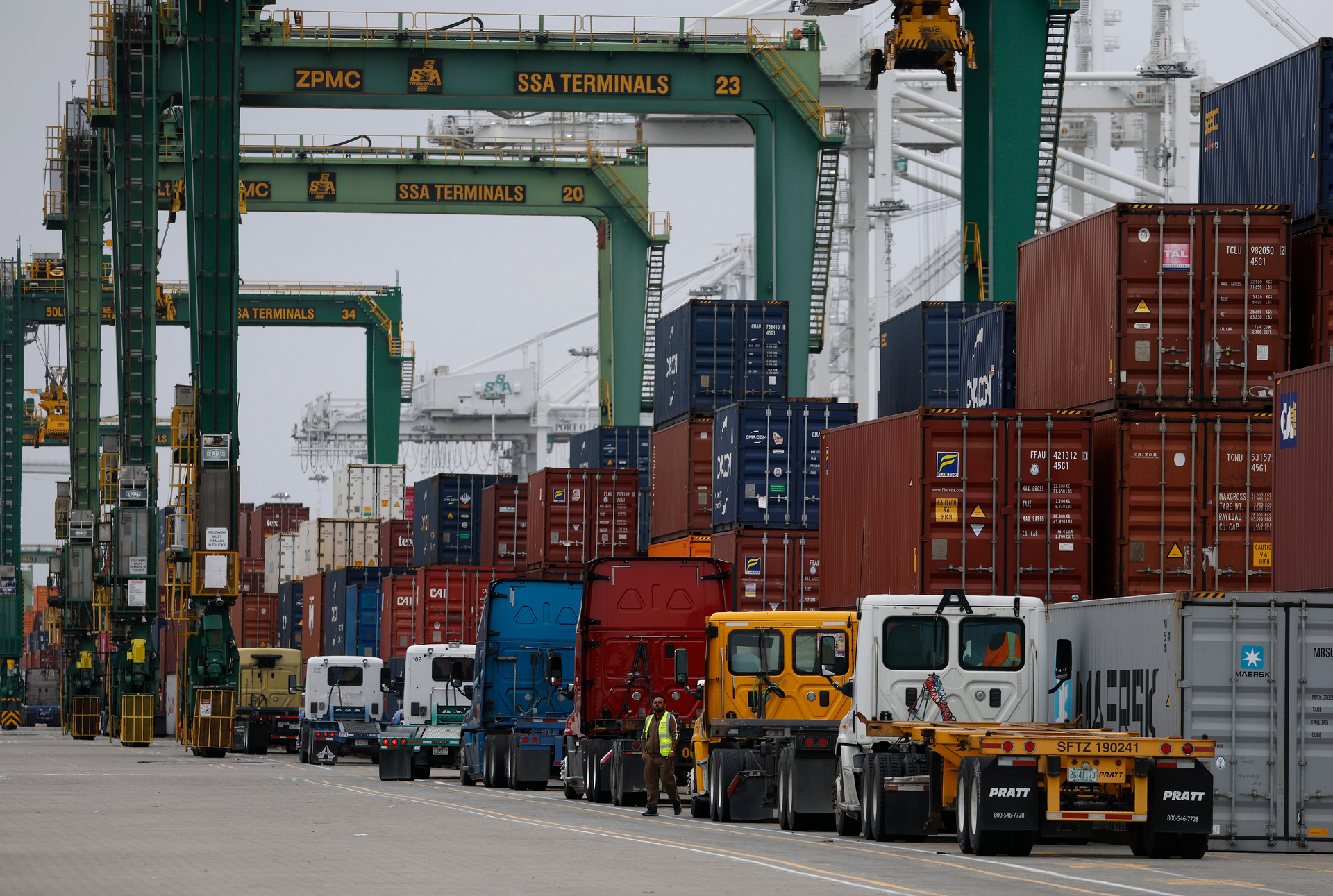Ford, Mattel, UPS, and more companies pulling their earnings guidance because of tariff uncertainty

Uncertainty over tariffs, supply chain instability, and other broader macroeconomic headwinds are pushing a growing number of major companies to pull their 2025 earnings guidance. From automakers to airlines and consumer giants, firms are increasingly opting to sit out of the forecasting game, citing economic uncertainty that, for some, is getting too thick to navigate.
Markets have mostly managed to hold up amid these swirling economic concerns. A number of large companies have maintained or only altered their guidance, which Chris Fasciano, chief market strategist at Commonwealth Financial Network, told Quartz was a positive sign.
“There was concern that companies wouldn’t have enough visibility into the future to issue guidance,” Fasciano said.
Still, the silence from some corporate boardrooms about what they think will come next is telling. For some major companies, though, the economic concerns are quickly becoming reality. Apple (AAPL), for example, in its recent earnings release, maintained its earnings guidance — but warned of a potential $900 million tariff-related hit in the next quarter. CEO Time Cook said it will be “very difficult” to predict beyond June, “because I’m not sure what will happen with tariffs.”
This week alone, companies from Ford to PepsiCo (PEP) have either scrapped or softened their outlooks. Ferrari (RACE) and Pandora both warned in their quarterly earnings report of coming tariff-related hits and trimmed their earnings guidance. Rivian (RIVN) took a similar route: It lowered its targets for vehicle deliveries and capital spending for 2025 because the “current global economic landscape presents significant uncertainty” such as “evolving trade regulation, policies” — and tariffs.
Super Micro Computer Inc. (SMCI) just reduced its fiscal 2025 revenue forecast to $21.8-$22.6 billion, down from a previous range of $23.5-$25 billion, because of economic uncertainty and the potential impact of tariffs.
According to Fasciano, recession mentions among S&P 500 firms are climbing, and expected earnings growth for 2025 has slipped from 15% at the start of the year to just 8%. He said “diversification is the best way to navigate [uncertainty] until [it] begins to clear.”
For now, though, as he put it, “Volatility is here to stay.”
Here are prominent companies that have already pulled their 2025 earnings guidance.
Allegiant

Allegiant (ALGT) Travel Company said economic volatility prevented the company from providing forward guidance.
“Heightened volatility is impacting domestic demand,” President and CEO Gregory Anderson said in the company’s earnings report. “Consequently, it is challenging to predict near-term demand, and we are therefore withdrawing our full-year 2025 guidance. ... We will continue to adjust capacity aggressively during the remainder of the year while ensuring that we appropriately address the items within our control.”
Steve Madden

Footwear and apparel company Steve Madden (SHOO) announced its first-quarter 2025 results but withheld forward guidance, citing the uncertain macroeconomic landscape. The company previously forecast revenue growth up to 19%.
CEO Edward Rosenfeld said Steve Madden faces “heightened uncertainty due to the impact of new tariffs on goods imported into the [U.S.]”
Cummins

Cummins (CMI), a global engine manufacturer known primarily for its diesel engines, cut its earnings guidance this week. CEO and Chair Jennifer Rumsey said that the “outlook for the remainder of the year remains unclear” but that Cummins “is in a strong position to navigate through economic uncertainty, and we look forward to reinstating our forecast when conditions allow.”
In its earnings report, Cummins said, “Due to growing economic uncertainty, the company is not providing an outlook for revenue or profitability for the remainder of 2025.”
Ford

While Ford (F) said it didn’t expect sticker prices on cars to rise much because of tariffs, it determined there’s still enough uncertainty to pull its guidance for the rest of 2025.
“Given material near-term risks, especially the potential for industrywide supply chain disruption impacting production, the potential for future or increased tariffs in the US, changes in the implementation of tariffs including tariff offsets, retaliatory tariffs and other restrictions by other governments and the potential related market impacts, and finally policy uncertainties associated with tax and emissions policy, the company is suspending guidance,” Ford said in a statement.
Rival GM (GM) didn’t pull its guidance, but it did suspend it.
Research firm Morningstar (MORN) said, “We are surprised Ford did not match GM’s messaging by updating guidance, but the current tariff policy environment is highly uncertain.”
Mattel

The maker of Barbie and other iconic toys has pulled its earnings guidance for the rest of the year and announced price hikes on some toys due to tariffs.
“Given the volatile macroeconomic environment and evolving U.S. tariff landscape, it is difficult to predict consumer spending and Mattel’s (MAT) U.S. sales in the remainder of the year and holiday season,” the toymaker said in a statement.
UPS

UPS (UPS), despite a profitable first quarter, joined a long list of companies dialing back their guidance for 2025. UPS did so citing the current macroeconomic environment.
“As a trusted leader in global logistics, we will leverage our integrated network and trade expertise to assist our customers as they adapt to a changing trade environment,” said Carol Tomé, UPS chief executive officer. “Further, the actions we are taking to reconfigure our network and reduce cost across our business could not be timelier. The macro environment may be uncertain, but with our actions, we will emerge as an even stronger, more nimble UPS.”
Southwest Airlines

Southwest Airlines (LUV) has pulled its guidance for 2025 and 2026 citing the current “macroeconomic uncertainty.”
CEO, tastytrade from IG, JJ Kinahan noted that the tariffs have clouded the future for companies.
“With respect to earnings, I expect we are going to continue hearing companies use future economic impact from tariffs as a sort of ‘get out of jail free card,’” Kinahan said, adding that the anticipated impact from tariffs have compelled several companies to pull forward guidance or issue multiple forecasts that account for variations in economic conditions.
“I think future guidance will continue to be a bit nuanced in terms of companies saying, “if... then” and I expect more companies to offer multiple guidance scenarios, Kinahan said.
Snap

Snap (SNAP), which owns the popular social media platform Snapchat, lowered its 2025 guidance.
“Given the uncertainty with respect to how macro economic conditions may evolve in the months ahead, and how this may impact advertising demand more broadly, we do not intend to share formal financial guidance for Q2,” the company said in a letter to investors.